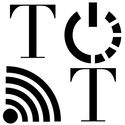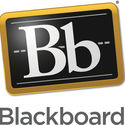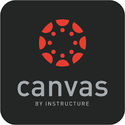Student Tech Talk: Blackboard vs. Canvas
Learning Management Softwares (LMS) go head to head
September 5, 2019
eLearning courses offer students a flexible alternative to on-campus classes. Best suited to self-starters or remote participants with unfailing access to the internet, some entire degrees can be earned remotely.
Whitman College and Washington State University use Blackboard, a web based LMS used in both academic and business environs to help students and employees take on learning.
Blackboard users have options in how the software is implemented: on the premises, managed hosting, or in the cloud.
Blackboard has recently been upgraded to include an open content tool for creating, finding and sharing resources without having to import or export anything. Users even have the ability to copyright their own content.
Blackboard is considered the original, it integrates with Microsoft OneDrive, and Dropbox, but can be buggy at times and does not play nicely with Google apps. Uploading an assignment may take longer than expected which, if you’re a student riding the hard edge of a swift deadline, can be detrimental to the grade point average.

Several Washington state schools including the University of Washington, Walla Walla Community College and Shoreline Community College use Canvas LMS. Canvas and its video platform, Arc, were designed for educational institutions.
Canvas invites prospective students to take a “LOOC” or a Local Opportunity in Canvas. It’s a chance to glance at a short section of class content.
Canvas is solely cloud based, so for an educational institution with the impetus to host its own data, not the ideal option. However, being cloud based provides a smoother and faster implementation process. Canvas also integrates with a wide range of tools whereas Blackboard only integrates with Dropbox, PowerSchool and OneDrive.

Navigation runs along the left side, providing easy access to the preferences dashboard, calendar, inbox and help. Class information is broken down into modules. Inside each module is the meat of the lesson. Canvas supports text articles, external links, discussion boards, and video content.
The modules are really clear about what and how each requirement is graded. Once the information has been absorbed, students can test their knowledge by taking quizzes.
Canvas MasteryPaths allows advanced course content to automatically be released to students based on their performance in reaching certain learning Outcomes, or competencies.
Both Blackboard and Canvas are functional light years ahead of the classic book and lecture learning model. eLearning is interactive, personalized, and therefore, enhanced.
Which is better? (Canvas, but..) Ultimately students are at the mercy of the school they attend. The competition between different learning management software options is what keeps the standards high enough for students to easily accept either option.







Reader Comments(0)